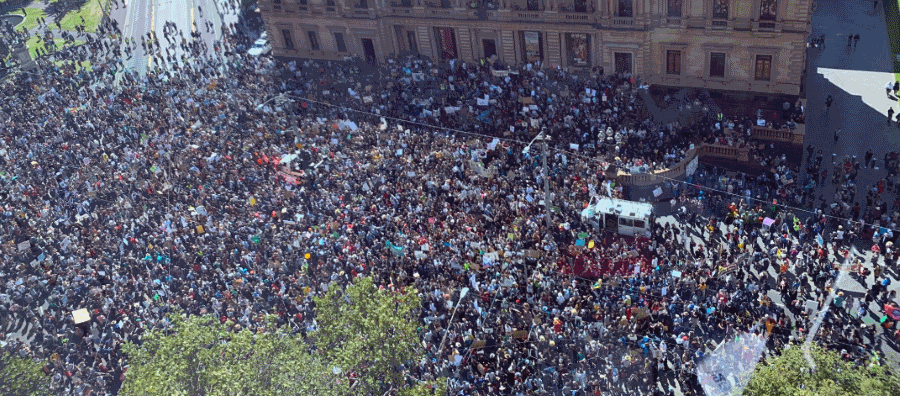What does climate change really mean for Victorians? Environment and climate change
What does climate change really mean for Victorians?
Climate change can seem like a looming but vague menace: you know it’s creeping up, but you’re not sure if you can see it yet.
But some Victorians are feeling the effects of climate change right now.
It’s affecting people’s health, comfort at home, safety in extreme weather or natural disasters, and financial wellbeing. And people already facing disadvantage stand to lose the most if we don’t get our response right.
There are four key things Victoria needs to deliver to ensure that everyone can stay safe and well in our changing climate:
- Access to affordable renewable energy
- Homes that are comfortable and affordable to run
- Responsive health services, and
- Resilience to extreme weather and natural disasters.
Access to affordable renewable energy
Victoria is rapidly shifting to renewable energy: 15 per cent of Victorian homes now have rooftop solar, and this rate is set to rise with the Solar Homes program.
But what about renters, or the many Victorians who persistently struggle to pay the energy bills? Switching to solar is a privilege not everyone can afford, and government solar subsidy schemes tend to help those who are already well-placed to take advantage of savings. Meanwhile, disadvantaged Victorians can be locked into the electricity grid and its rising costs.
But affordable clean energy can be a reality. We can relieve the pressure on people’s household budgets and remove the barriers to clean energy, through:
- Solar schemes for rental properties that are feasible and affordable for low-income and vulnerable renters
- Providing solar for social housing, to ensure the most vulnerable Victorians don’t pay more on their bills and help the Government meet its target of net zero greenhouse gas emissions by 2050
- Making sure people on low incomes can access clean energy through the grid at an affordable price.

Thousands of school students march against climate change in Melbourne as part of an international day of action in March 2019. Image: Stephanie Anderson.
Affordable, comfortable homes
We’ve just lived through a spate of extreme heat, and in coming years we can expect more of the same. This can be dangerous for people who live in homes without proper insulation or cooling, or who can’t afford to keep the air con running.
Along with affordable energy, Victorians need homes that are well-designed, well-insulated and have efficient appliances.
The Victorian Government can build on the good work started with programs like EnergySmart Public Housing and Savvy Energy Upgrades to ensure that everyone, including those on low incomes or in public housing, has a comfortable home. This should include:
- Mandating meaningful energy efficiency standards for rental housing
Responsive health services
In our changing climate we need to become more vigilant about the health impacts of heatwaves, which can be dire. The heatwaves around Black Saturday in 2009 are estimated to have killed 374 people and hospital emergency cases increased by up to 46 per cent, with cardiac arrest cases almost tripling.
There are also risks of increased allergens in the air, such as thunderstorm asthma events, as well as possible increases in insect-borne diseases. Climate change also affects people’s mental health. And people with existing health conditions are at even greater risk, along with older people, children and those who are pregnant or breastfeeding.
Health services, including community health services, need to be equipped to respond to these risks. The Climate and Health Alliance and Doctors for the Environment Australia have both put forward recommendations for the Australian Government to protect our health and wellbeing, such as:
- Undertaking ongoing research to understand the health impacts of climate change
- Implementing a coherent strategy to protect people’s health and wellbeing from climate change
- Empowering health services to respond to new and different demands.
Resilience to extreme weather and disasters
We can all see that extreme weather events and natural disasters are worsening.
Many Victorians live in isolated areas or areas at high risk of disasters – for some this is the only affordable option. These people can be financially ruined if their home is hit by fire, flood or storm; and ill-health and social isolation can make them particularly vulnerable.
Disasters and extreme weather events can also seriously affect social, physical and mental wellbeing; for example, the Black Saturday bushfires led to an increase in mental health issues, risky alcohol consumption, chronic and non-communicable diseases, family violence and environmental damage.
Victoria needs to support the people and communities most vulnerable to the impacts of climate change. We also need to ensure community organisations are resilient and can give the support people need before, during and after a disaster or extreme weather event.
What next?
Climate change presents a huge ongoing challenge for our whole community. It’s a challenge we’re still figuring out how to respond to, but we have to act fast and effectively to avoid the worst repercussions for the most vulnerable.
One thing VCOSS members can do is tell us about your experiences and views: how will your work be impacted by changes to energy costs, extreme weather, disasters and other impacts of climate change?
Here are two things you can do
- Answer our survey the climate change resilience of community organisations
- Check out these grants to help communities adapt to the changing climate.